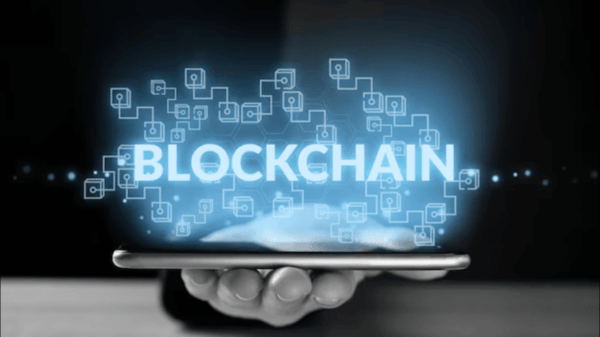Overview
In the fast-paced world of today, innovation is not only a catchphrase but also a vital force behind social advancement and economic prosperity. Holding contests and hackathons is one of the best ways to promote innovation. These gatherings unite various groups of people to solve challenging issues, develop novel products, and push the envelope of what is thought to be feasible. However, what precisely are contests and hackathons, and how can they support the innovation ecosystem? The significance of these occurrences and their effects on participants and society at large are clarified by the in-depth exploration of these issues in this article.
Hackathons’ Contribution to Innovation
Hackathons: Their Evolution and History
Since their inception, hackathons have evolved significantly. The word “hackathon” is a combination of the words “hack” and “marathon,” and the first ones were put on by tech businesses in the late nineties. These first gatherings were tiny and mostly concentrated on software development. Hackathons have changed dramatically over time, entering industries other than technology, such as healthcare, education, and finance. These days, hackathons are an international phenomenon that draw thousands of participants and receive a lot of media coverage.
Hackathon Types
Hackathons can be generically classified as student, corporate, or community events. Companies host corporate hackathons to encourage innovation among their employees and create new goods and services. These activities frequently foster cross-departmental cooperation and give workers a creative outlet. On the other side, open to the public, community hackathons usually concentrate on creating open-source projects or finding solutions to societal problems. Lastly, educational institutions host student hackathons with the goal of developing the next wave of innovators by giving them practical experience and networking possibilities.
Ways Hackathons Help Corporate Innovation
In the tech world, hackathons are a common occurrence and are used as a vehicle for innovation. But how do hackathons help? Here, we show seven ways that hosting hackathons can benefit a corporation.
1. Encouraging collaborative participation
As the saying goes: “two heads are better than one”. Because of their team-based, intensive nature, hackathons help to foster a healthy, collaborative approach. By placing participants in groups, they’re forced to think, brainstorm, and work together to solve the problem.
Hackathons encourage a resourceful collaborative culture within the corporation as participants are forbidden from working individually. They must think, design, and produce cooperatively. The collaborative ideas from hackathons lead to solutions that can’t be created alone.
2. Taking People Out of Their Comfort Zone
Taking people out of their comfort zones is one of the main ways hackathons unlock creativity. This is thanks to the dynamic change to a regular work routine. Nothing fosters inspiration in a person better than new and novel experiences.
Hackathons usually have a very limited timeframe of one to two days to create a solution. Placing participants in this kind of high-pressure environment successfully takes them out of their comfort zone.
This intense atmosphere creates a sense of urgency and motivates them to give their best. It also forces them to take risks and experiment to be the winning project in a hackathon. Teams must be able to brainstorm fast and hard.
This environment is very different from a normal working day and compels participants to flex their creative muscles. This results in a free flow of innovative ideas, not just from teammates but from themselves, thereby generating innovative solutions.
3. Allowing Socially Diverse Inputs
Hackathons can involve both employees and external actors who are interested in participating. Having external participants from anywhere means teams are more socially diverse. This is conducive to the production of innovative ideas and concepts thanks to the input of various perspectives.
This diversity is beneficial because the problem is perceived in numerous different ways. A freelancer who works remotely may view a problem from a different angle compared to a developer who works 9-5 at a corporation. The differences in culture, lifestyle, and ethos in a team add extra dimensions to the thought process.
Different viewpoints produce more innovative ideas, and hackathons encourage experimentation with a range of inputs from various perspectives.
4. New and Innovative Products
One of the main ways companies benefit from hackathons is in the development of fresh innovations. Hackathons encourage the free flow of ideas, which results in new applications and products based on this collaborative and diverse atmosphere.
A hackathon one or two-day time frame is too short to produce a complete product but can lead to prototypes or something that meets enough software quality attributes to have a real chance of succeeding once fully realized.
The practice of exploring and learning is a valuable takeaway for the participants and the host company and may also stimulate further useful ideas down the line.
5. A Live Assessment of Talent
Hackathons can be used to attract talent too. Beyond enterprise workforce management tools, big corporations like Facebook, PayPal, and Chevrolet consider them to be potential recruitment tools.
Host companies get to watch a live demonstration of the talent and skill of participants and can see their abilities firsthand. This is something they can’t get from a resume. Hackathons thus provide a unique recruitment opportunity.
6. Recruiting New Team Members
Hackathons are competitions that feature prizes to draw the top talent and motivate innovative ideas. Judging is strict, with only the most clever concepts or products winning. Participants are incentivized to produce creative solutions, and the host company benefits from the resultant prototypes.
Prizes may range from large sums of money to a job with the host company. These prizes act as an incentive, but companies should use them to their advantage too by offering employment contracts for the overall winners. This way, they have a great job opportunity at the end of it and you have a talented new team who you know work well together.
7. Corporate Branding Boost
Hackathons also represent a branding opportunity for the host company. This is particularly important for startups that need new talent to grow, especially when these individuals usually look to more recognizable brands for employment.
Hackathons create a lot of buzz about the host company and help to brand it as a dynamic market player. If the hackathon includes industry leaders and technical advisors as judges or participants, the company gains added traction in the market.
As a company’s hackathons get more popular, it becomes easier to find sponsors to fund them. Companies can use the local press to attract talent and social media to appeal to a wider audience.
Case Studies and Success Stories
A plethora of success stories demonstrates how hackathons foster innovation. The creation of GroupMe, a group messaging program that was developed during a hackathon and eventually purchased by Skype for $85 million, is one noteworthy example. The development of the healthcare app HealthTap, which links patients and physicians and has received millions in venture capital funding, is another success story. These case studies show how hackathons may act as seed banks for innovative concepts and new businesses.
Effects on the Participants
Hackathon participation can have a significant effect on people. Many see these occasions as chances to pick up new skills like project management, design thinking, and coding. Additionally, hackathons offer a special venue for networking, enabling attendees to meet like-minded people, possible employers, and industry insiders. Hackathons can also lead to employment chances, as many businesses use them to find new employees.
The Function of Contests in Promoting Innovation
An Overview of Innovation Contests
There have been innovation contests for centuries; some of the first ones date to the 18th century. These contests, which frequently have substantial money prizes, test individuals or groups’ ability to come up with creative answers to certain issues. Innovation contests now cover a broad spectrum of fields and sectors, from the arts and sciences to social entrepreneurship and science.
Illustrations of Prominent Contests
Numerous well-known invention competitions have had a profound effect on society. For instance, the XPRIZE Foundation hosts contests aimed at tackling worldwide issues like healthcare, environmental sustainability, and space exploration. The Google Science Fair is another noteworthy competition that inspires young kids to use science to solve real-world issues. These contests excite competitors and spectators alike, in addition to offering a forum for creativity.
How Contests Encourage Innovation
Problem-Solving Innovation contests aim to force participants to step outside of their comfort zones and stimulate original thought. These challenges encourage people to think creatively and come up with original solutions by setting a clear objective and creating a sense of urgency. These competitions also encourage healthy rivalry and a sense of camaraderie, which can produce more creative and robust results.
Effects on Society and Industries
Innovation competitions have an impact on the industries and societies they serve in addition to the participants. These competitions have produced a number of innovative innovations and solutions that have advanced sectors including artificial intelligence, medical research, and renewable energy. Furthermore, these occasions frequently spur greater societal change and increase awareness of significant issues.
Comparing Competitions with Hackathons: Major Dissimilarities and Commonalities
Although promoting innovation is the aim of both hackathons and contests, there are some significant differences between the two. While competitions usually feature a more formal judging process and a lengthier timetable, hackathons are more likely to be more collaborative and focused on quick prototyping. Nonetheless, the creation of new ideas, creativity, and problem-solving are emphasized in both formats.
Particular Advantages of Every competition and hackathon has its own advantages. Hackathons are perfect for creating new features or products because they offer a fast-paced atmosphere that promotes creativity and teamwork. Conversely, competitions provide players with the chance to explore an issue more thoroughly and create more complete answers. Competitions’ structured format also makes it possible to evaluate and recognize accomplishments with greater rigor.
Selecting the Appropriate Structure for Various Goals
A hackathon or competition should be chosen based on the particular goals and circumstances. In order to promote creativity and teamwork inside the organization, a hackathon would be a more suitable option. An innovation competition might be better ideal for firms that want to generate big technology improvements or address complicated societal concerns. Organizers may create events that have the greatest possible impact by being aware of the advantages and disadvantages of each format.
Emerging Trends: The Future of Hackathons and Competitions
Hackathons and contests are evolving along with the world. The COVID-19 epidemic has expedited the tendency toward virtual events, which is one rising trend. More accessibility is provided by virtual hackathons and competitions, which enable global participation without requiring physical travel. Furthermore, diversity and inclusivity are becoming increasingly important, and many events explicitly aim to include marginalized groups. Another popular trend is sustainability, as event planners search for methods to lessen their events’ negative environmental effects.
Technology’s Impact on Future Events
Technological developments are also having a big impact on how hackathons and competitions develop in the future. These events are incorporating tools like virtual reality, blockchain, and artificial intelligence, which open up new possibilities for creativity and cooperation. AI, for instance, can help match players, while blockchain can guarantee the fairness and integrity of the decision-making procedures. On the other hand, immersive settings provided by virtual reality can improve the hackathon experience.
Forecasts for the Upcoming Decade
In the future, hackathons and contests are probably going to become even more essential parts of the innovation ecosystem. Anticipate an increase in interdisciplinary gatherings that unite specialists from many domains to address intricate, multifaceted issues. Additionally, these occasions will be essential in assisting people and firms in staying ahead of the curve when the rate of technological advancement quickens. In the end, hackathons and contests have a bright future ahead of them, with countless opportunities to spur innovation and improve the world.
FAQs
1. What distinguishes a competition from a hackathon, specifically?
The format and focus are the primary areas of distinction. Hackathons are brief, intense events that focus on teamwork and quick prototyping, whereas competitions usually have a more rigorous evaluation process and a longer time frame. Though they approach it differently, both want to promote creativity.
2. How can people become ready to compete in hackathons and other events?
A varied and competent team must be assembled, the event must be well researched, the rules and objectives must be understood, and pertinent skills like problem-solving and coding must be practiced. For inspiration, it’s also beneficial to become familiar with prior winning initiatives.
3. Are there any disadvantages to taking part in these activities?
Hackathons and contests have numerous advantages, but they can also have disadvantages, such the high pressure and time commitment involved. Furthermore, these competitions can occasionally cause stress or burnout due to their competitive nature. It’s critical that participants effectively manage their time and expectations.
4. What are the advantages for businesses holding hackathons?
Hackathons are advantageous to businesses in a number of ways. These occasions might be a great place to get fresh perspectives and ideas for problems that can be solved to create new goods and services. They offer a venue for finding fresh talent as well as a chance for teamwork and employee involvement.
Key Takeaway
- To sum up, hackathons and contests are essential for promoting creativity in a variety of industries. These gatherings of disparate people foster innovative problem-solving techniques and yield ground-breaking concepts and innovations.
- Future developments in hackathons and contests promise to unleash even more creative potential, making them essential resources for people, businesses, and other entities.







































